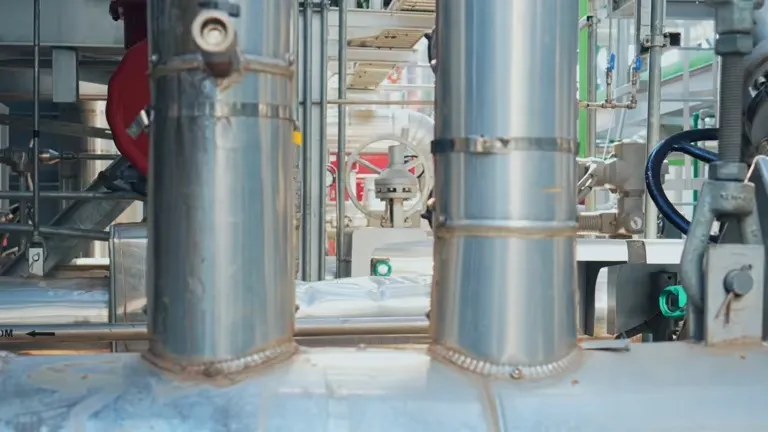
Boiler Installation in Columbia, PA
Replacing or installing a new boiler is one of the most important upgrades a homeowner in Columbia, PA can make for comfort, safety, and long-term energy savings. Columbia’s cold winters, older homes with radiator systems, and proximity to the Susquehanna River (which can increase humidity and occasional basement moisture) mean a properly sized, well-installed boiler is critical to reliable heat and efficient operation.
Common boiler types and local considerations
Columbia homes commonly rely on:
- Hot water (hydronic) boilers feeding baseboards or radiators — frequent in historic or renovated houses.
- Steam boilers in older multi-story homes.
- High-efficiency condensing boilers for compact installations and better fuel economy.Fuel sources in the area include natural gas (available in many neighborhoods), propane, and oil. Choosing the right boiler depends on existing distribution (radiators vs. baseboards), fuel availability, and how long you plan to stay in the home.
Local factors that influence the installation:
- Cold, prolonged winters increase annual heating demand.
- Older homes may have undersized piping, uneven radiation, or poor insulation that affect load calculations.
- Basements near the river may require elevated equipment pads or special venting considerations to prevent moisture-related issues.
Site assessment and heating load calculations
A professional installation begins with a thorough site assessment and accurate heating load calculation:
- Inspect the home’s envelope: insulation levels, windows, doors, and air infiltration points.
- Document the heating distribution: pipe sizes, radiators/baseboards, and any zones with uneven heat.
- Perform a heating load calculation (often using Manual J or a comparable method) to determine the actual BTU requirement for the home rather than relying on the old boiler’s rating.
Accurate load calculations prevent oversizing (short cycling, wasted energy) and undersizing (inadequate comfort). In Columbia’s climate, factoring in cold design temperatures and how the home is used (finished basements, attic insulation) leads to a properly matched system.
Recommended equipment and efficiency options
Equipment selection balances comfort, longevity, and operating cost:
- Condensing boilers: Highest efficiency (often 90%+ AFUE) for hot water systems; best when return-water temperatures are low.
- Non-condensing boilers: Reliable and cost-effective for systems with higher return temps or steam applications.
- Modulating burners and variable-speed pumps: Improve comfort, reduce fuel use, and provide quieter operation.
- Smart controls and zone valves: Allow precise room-by-room control and maximize efficiency in homes with variable occupancy.
Homeowners in Columbia should also consider corrosion-resistant materials, freeze protection for seldom-used lines, and stainless-steel heat exchangers if local water quality or humidity is a concern.
Professional installation steps and code/safety compliance
A professional boiler installation follows a defined, safety-focused sequence:
- Obtain required permits and schedule inspections per local code.
- Remove the old boiler safely, addressing disposal and potential asbestos or lead paint in older installations.
- Prepare the installation site: pad or platform, proper clearances, and combustion air provisions.
- Install fuel connections, venting/chimney system, and flue components sized to manufacturer specs.
- Connect hydronic piping, pumps, expansion tanks, and air-separation devices; ensure proper slope and trap installations for steam systems.
- Integrate controls, thermostats, and zone piping; confirm wiring follows electrical code.
- Perform gas pressure tests, leak checks, and combustion safety verifications.
Compliance items particularly important in Columbia and Lancaster County include correct venting to prevent backdrafting, combustion air for tightly sealed homes, and adherence to state and local inspection requirements.
Commissioning, testing, and what homeowners should expect
Commissioning confirms the system operates as intended:
- Initial fill, purge of air from hydronic circuits, and correct pump orientation.
- Combustion analysis to set gas or oil combustion parameters for safe, efficient burn.
- System balancing and thermostat programming to ensure even comfort across all zones.
- Walk-through with the homeowner to explain controls, maintenance points, and safety features.
During installation homeowners can expect work to be contained to the utility area as much as possible, temporary disruptions to heat and possibly hot water, and technicians protecting floors and furnishings. Typical installations may require a full day to multiple days depending on system complexity and any required piping upgrades.
Warranty, maintenance enrollment, and long-term care
New boilers come with manufacturer warranties on key components. Equally important is a maintenance plan that protects the installation:
- Annual tune-ups ensure burners, heat exchangers, and controls remain efficient and safe.
- Regular system flushing and water quality checks extend the life of the boiler and reduce corrosion.
- Enrollment in a preventive maintenance program keeps warranty requirements current and helps identify issues before they cause failures during Columbia’s coldest months.
Ask for clear documentation of warranty coverage and recommended maintenance intervals. Properly maintained boilers perform better in extended heating seasons and reduce emergency repair risk.
Scheduling details and realistic timelines
A smooth installation timeline includes:
- Initial site assessment and load calculation: typically scheduled within a few days to a week.
- Permit approval and material lead times: factors that can add one to three weeks depending on season and part availability.
- On-site installation and commissioning: usually completed in one to several consecutive days, depending on scope.
Peak heating season may extend lead times due to higher demand; planning installations during shoulder seasons helps secure timely service and reduces disruption.
Final benefits and homeowner outcomes
A correctly chosen and professionally installed boiler in Columbia, PA delivers:
- Consistent, comfortable heat throughout cold winters.
- Improved energy efficiency and lower fuel bills with modern systems.
- Safer operation with code-compliant venting and combustion controls.
- Extended equipment life with preventive maintenance enrollment.
For Columbia homeowners with older hydronic systems or those seeking higher efficiency and reliable comfort, a full, code-compliant boiler installation—backed by accurate load calculations, quality equipment options, and expert commissioning—provides the best long-term results.


Enjoy flexible financing options that make upgrading or repairing your HVAC system easy and budget-friendly.










